#Ted M. Huxley
Explore tagged Tumblr posts
Text



felix and teddy from kindergarten but you can see me headcanon them more and more
#mine#m art#kindergarten#kindergarten game#kindergarten 2#felix huxley#ted huxley#theodore huxley#ok bye
60 notes
·
View notes
Text
Huxley Tales!
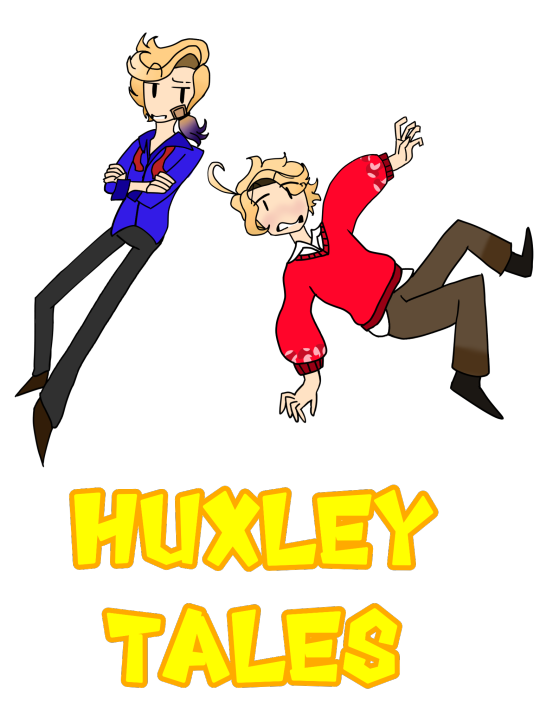
An alternate universe where the Huxley hop universes! Felix aims on fixing anomaly's, while Ted just wants to lend a helping hand!
#ted huxley#felix huxley#Felix W. Huxley#Ted M. Huxley#kindergarten 2#please send me asks#HT felix#HT ted
36 notes
·
View notes
Note
✷ teddy gains the ability to conjure one (1) square cm of unflavoured tofu per day
Fun events/M!A’s?? Let’s give it a try! | Accepting!
✷ – MAGICA – Your muse develops magical powers, as specified by asker or left to mun’s imagination.


#kindergarten 2#kindergarten ted#kindergarten game#ted huxley#ted kindergarten#|| Mediocre Doodles || Art Tag.#|| Good For Nothing Disgrace || Visage.#|| Unconfident Wealthy Child || IC.#|| Did You Mean To Talk To Felix? || Asks.#|| Like An Open Book || Meme Answers.#M!A: Magica#Anonymous#🖋️ ––– ・゚★。・:*:・゚☆ 002. My Art.
45 notes
·
View notes
Note
Don't worry Ted I'm sure Penny likes you back.
M!A: 15/??

[Ted]: Oh, thanks! I can only hope so…


[Felix]: No. No, I am fine.
[Ted]: Felix…? Are you sure?


[Ted]: F… Felix? Is that true?
[Felix]: Wh-What? No, of course not! That is absolute slander. I told you, I don’t like Penny in that way. She’s just a friend.
[Ted]: Oh… Uh, okay.
#kindergarten 2#kindergarten ted#kindergarten felix#ted huxley#felix huxley#ted kindergarten#felix kindergarten#huxley twins#Visuals.#Ted#Felix#Ted IC;#Felix IC;#Answered.#Anonymous#ask-akemi-and-sora#askakemiandsora#M!A: Mind swap#Queued.#kindergarten roleswap
57 notes
·
View notes
Note
Mo I know you posted about it like 2 hours ago but I love kindergarten 2 and havent seen any content or opinions about it since it first came out so I would really enjoy hearing you talk about it honestly 🥺🥺🥺
oh my god?? 🥺🥺💕 thank you so much for giving me an excuse to talk about it hygsgdfg
i haven’t seen a lot of kindergarten 2 content either ever since the hype died down. i rewatched jacksepticeye’s playthrough recently and now i’m just kinda searching the tags for new art/headcanons 😔 but! i guess i might as well put my own content out there now that i have the chance! here are some headcanons and opinions and pretty much everything i’ve been thinking about it
personal opinions:
nugget is a king as per usual 😌✨ we stan a true intellectual
the huxley twins are by far my favorite characters in the series (sorry nugget-). i just really like their dynamic and it just seems like there’s a lot of ✨lore✨ behind them. i probably have more headcanons for them than for anyone else tbh
i hate the janitor with a burning passion he makes me want to throw hands with an 80 year old. monty gave him less than what he deserved 😤
60% of me loves ozzy and 40% of me wants to give him a bouquet of green flowers
he reminds me of sammyclassicsonicfan
there should be a third alternate ending to cain’s not able where felix gets a redemption arc, learns how to not be a dick to teddy, and they both live happily ever after. 😔 alas.
i think penny should’ve been the one to kill the principal. she deserved it after all of that :(
jerome is criminally underrated. i love him and he deserved more screen time :(
lily and billy are so cool what the h*ck
stevie was just trying to do his job i’m so sad-
honestly, i don’t ship felix and cindy at all. if anything, they make me think of a married couple who got divorced and stayed best friends afterwards- but i do love how much of a chaotic duo they are
buggs: *breathing*
me:

seriously someone please just hug him
okay but WHY did the principals want to turn the kids into monsters? i get it but like i wanna know their motives. the female principal said that she wanted to take over other schools in the area but for WHAT i’m curious
clout glasses felix was the best thing to come out of the fandom and you can’t change my mind
i gotta know what that trip to the nugget factory was like for felix and nuggie wuggie. did they have a bonding moment. did they just go to mcdonald’s. did they h*ld h*nds. I Need To Know
dr. danner deserves to say one swear word. as a treat. he is so tired
headcanons:
penny is alive (figuratively speaking) and well after creature feature. monty and carla rebuilt her with danner’s help and she’s not a pile of robotic parts and goo anymore,, monty’s family ended up taking her in because they think she’s just a sweetheart
the main character and nugget both don’t have parents/family and live on their own. gang gang 🤟
buggs is much wiser than he lets on. he’s supposed to be in first grade but got held back
nugget has a diet that consists solely of different brands of chicken nuggets and honey mustards
ozzy and ted are secretly best friends
ozzy wears gloves 24/7
monty has a new york accent and the huxley’s have british accents you Cannot change my mind
ted literally thinks that felix is the coolest person to ever walk the planet. he pretty much idolizes him. which is why he never stands up for himself when felix starts being... well, felix. he justifies all of his brother’s actions even though he knows they’re wrong
the twins eventually learn how to be good brothers to each other because i’m dumb and i want them to be happy together :’(
buggs and penny eventually become very good friends (he pretended not to want her friendship bracelet, yet he wears it every day)
that leg in the nugget cave? penny’s. :)
ted plays violin and felix plays piano
monty actually comes from a really wholesome family, but they don’t have a lot of money. he uses his earnings from his side business to help them out because he loves the hell outta them
the huxley twins’ mom isn’t apart of their lives. she and mr. huxley got divorced when he got caught cheating 👀 it was a huge scandal and after they divorced she straight up ditched them. at least, that’s what father tells them
theodore is just ted’s evil alter ego okay. it’s his emo persona okay. that’s not my boy, he’s just going through a phase, thAT’S NOT m
#wow this was#so much longer than i intended#i hope it’s at least a little bit understandable#i saw ‘kindergarten 2’ and ‘talk’ in the same sentence and immediately went off#kindergarten 2#long post#thank you for letting me talk about these little rapscallions
11 notes
·
View notes
Text
#1yrago Happy Public Domain day: for real, for the first time in 20 years!

Every year, Jennifer Jenkins and Jamie Boyle from the Duke Center for the Public Domain compile a "Public Domain Day" list (previously) that highlights the works that are not entering the public domain in America, thanks to the 1998 Sonny Bono Copyright Term Extension Act, which hit the pause button on Americans' ability to freely use their artistic treasures for two decades -- a list that also included the notable works entering the public domain in more sensible countries of the Anglophere, like Canada and the UK, where copyright "only" lasted for 50 years after the author's death.
But this year, it's different.
This is the year that America unpauses its public domain; it's also the year that Canadian PM Justin Trudeau capitulated to Donald Trump and retroactively extended copyright on works in Canada for an extra 20 years, ripping works out of Canada's public domain, making new works based on them into illegal art (more proof that good hair and good pecs don't qualify you to be a good leader -- see also: V. Putin -- not even when paired with high-flying, cheap rhetoric).
Even as Canada's public domain has radically contracted, America's has, for the first, time, opened.
So this year's American Public Domain Day List is, for the first time in 20 years, not a work melancholy alternate history, but rather a celebration of works that Americans are newly given access to without restriction or payment, for free re-use and adaptation, in the spirit of such classics as Snow White, West Side Story, My Fair Lady, All You Need is Love, and more (More than 1,000 in all, summarized in this handy spreadsheet -- thanks Gary!).
Films * Safety Last!, directed by Fred C. Newmeyer and Sam Taylor, featuring Harold Lloyd * The Ten Commandments, directed by Cecil B. DeMille * The Pilgrim, directed by Charlie Chaplin * Our Hospitality, directed by Buster Keaton and John G. Blystone * The Covered Wagon, directed by James Cruze * Scaramouche, directed by Rex Ingram
Books * Edgar Rice Burroughs, Tarzan and the Golden Lion * Agatha Christie, The Murder on the Links * Winston S. Churchill, The World Crisis * e.e. cummings, Tulips and Chimneys * Robert Frost, New Hampshire * Kahlil Gibran, The Prophet * Aldous Huxley, Antic Hay * D.H. Lawrence, Kangaroo * Bertrand and Dora Russell, The Prospects of Industrial Civilization * Carl Sandberg, Rootabaga Pigeons * Edith Wharton, A Son at the Front * P.G. Wodehouse, works including The Inimitable Jeeves and Leave it to Psmith * Viginia Woolf, Jacob's Room
Music * Yes! We Have No Bananas, w.&m. Frank Silver & Irving Cohn * Charleston, w.&m. Cecil Mack & James P. Johnson * London Calling! (musical), by Noel Coward * Who’s Sorry Now, w. Bert Kalmar & Harry Ruby, m. Ted Snyder * Songs by “Jelly Roll” Morton including Grandpa’s Spells, The Pearls, and Wolverine Blues (w. Benjamin F. Spikes & John C. Spikes; m. Ferd “Jelly Roll” Morton) * Works by Bela Bartok including the Violin Sonata No. 1 and the Violin Sonata No. 2 * Tin Roof Blues, m. Leon Roppolo, Paul Mares, George Brunies, Mel Stitzel, & Benny Pollack (There were also compositions from 1923 by other well-known artists including Louis Armstrong, Irving Berlin, George Gershwin, WC Handy, Oscar Hammerstein, Gustav Holst, Al Jolson, Jerome Kern, and John Phillip Sousa; though their most famous works were from other years.)
And as great as that list is, it's hardly a patch on the amazing works we'd be inheriting if the Sonny Bono law hadn't been passed and the 1978 law was still on the books -- works whose authors fully expected them to be in the public domain as of tomorrow:
Books * Madeleine L’Engle, A Wrinkle in Time * Rachel Carson, Silent Spring * Barbara Tuchman, The Guns of August * Katherine Anne Porter, Ship of Fools * James Baldwin, Another Country * Philip K. Dick, The Man in the High Castle * Thomas Kuhn, The Structure of Scientific Revolutions * Vladimir Nabokov, Pale Fire * Anthony Burgess, A Clockwork Orange * Michael Harrington, The Other America * Milton Friedman, Capitalism and Freedom * J.G. Ballard, The Drowned World * Ray Bradbury, Something Wicked This Way Comes * Ken Kesey, One Flew Over the Cuckoo’s Nest * Edward Albee, Who’s Afraid of Virginia Woolf? * Aleksandr Solzhenitsyn, One Day in the Life of Ivan Denisovich * Doris Lessing, The Golden Notebook * Helen Gurley Brown, Sex and the Single Girl * Ingri d’Aulaire and Edgar Parin d’Aulaire, D’Aulaires’ Book of Greek Myths
Movies * Lawrence of Arabia * The Longest Day * The Manchurian Candidate * Dr. No * Jules and Jim * Sanjuro * Birdman of Alcatraz * Mutiny on the Bounty * Days of Wine and Roses * How the West Was Won
Music * Dream Baby (How Long Must I Dream), by Cindy Walker, performed by Roy Orbison * Blowin’ in the Wind, Bob Dylan * Watermelon Man, Herbie Hancock (from his first album, Takin’ Off) * Twistin’ the Night Away, Sam Cooke * You Can’t Judge a Book by the Cover and You Shook Me, Willie Dixon * Surfin’ Safari, The Beach Boys * Songs from A Funny Thing Happened on the Way to the Forum, Stephen Sondheim * Dream Baby (How Long Must I Dream), Cindy Walker * Big Girls Don’t Cry, Bob Crewe and Bob Gaudio * Breaking Up Is Hard To Do, Neil Sedaka and Howard Greenfield * Little Boxes, Malvina Reynolds * The Loco-Motion, Gerry Goffin and Carole King * Soldier Boy, Luther Dixon and Florence Greenberg
And, as Jenkins and Boyle point out, the largely hidden casualty of copyright term extension is the scholarship and research published in academic journals, who paid nothing for these works, and who have locked them up for decades to come:
https://boingboing.net/2018/12/31/thanks-justin.html
13 notes
·
View notes
Note
Has Monty ever considered *cough* borrowing the Huxleys’ credit card?
(M!A 12/20)
Monty: I have. But Felix and Ted don’t have credit cards, so I just *ahem* borrow... Felix’s wallet.
Felix: THAT’S WHERE MY WALLET GOES
Kid: Stealing is bad!
1 note
·
View note
Text
Public Domain Day: 50,000 titles from 1923 available
New Post has been published on https://www.aneddoticamagazine.com/public-domain-day-50000-titles-from-1923-available/
Public Domain Day: 50,000 titles from 1923 available
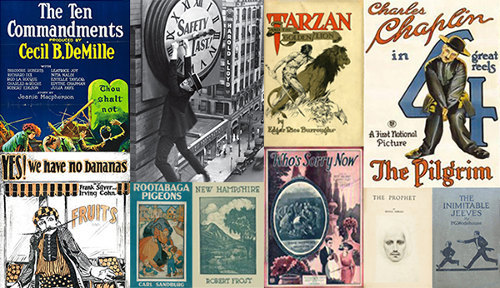
January 1, 2019 is (finally) Public Domain Day
For the first time in over 20 years, on January 1, 2019, published works will enter the US public domain.1 Works from 1923 will be free for all to use and build upon, without permission or fee. They include dramatic films such as The Ten Commandments, and comedies featuring Charlie Chaplin, Buster Keaton, and Harold Lloyd. There are literary works by Robert Frost, Aldous Huxley, and Edith Wharton, the “Charleston” song, and more. And remember, this has not happened for over 20 years. Why? Works from 1923 were set to go into the public domain in 1999, after a 75-year copyright term. But in 1998 Congress hit a two-decade pause button and extended their copyright term for 20 years, giving works published between 1923 and 1977 an expanded term of 95 years.2
But now the drought is over. How will people celebrate this trove of cultural material? Google Books will offer the full text of books from that year, instead of showing only snippet views or authorized previews. The Internet Archive will add books, movies, music, and more to its online library. HathiTrust has made over 50,000 titles from 1923 available in its digital library. Community theaters are planning screenings of the films. Students will be free to adapt and publicly perform the music. Because these works are in the public domain, anyone can make them available, where you can rediscover and enjoy them. (Empirical studies have shown that public domain books are less expensive, available in more editions and formats, and more likely to be in print—see here, here, and here.) In addition, the expiration of copyright means that you’re free to use these materials, for education, for research, or for creative endeavors—whether it’s translating the books, making your own versions of the films, or building new music based on old classics.
Here are some of the works that will be entering the public domain in 2019. A fuller (but still partial) listing of over a thousand works that we have researched can be found here. (You can click on some of the titles below to get the newly public domain works.)
Films
Safety Last!, directed by Fred C. Newmeyer and Sam Taylor, featuring Harold Lloyd
The Ten Commandments, directed by Cecil B. DeMille
The Pilgrim, directed by Charlie Chaplin
Our Hospitality, directed by Buster Keaton and John G. Blystone
The Covered Wagon, directed by James Cruze
Scaramouche, directed by Rex Ingram
Books
Edgar Rice Burroughs, Tarzan and the Golden Lion
Agatha Christie, The Murder on the Links
Winston S. Churchill, The World Crisis
e.e. cummings, Tulips and Chimneys
Robert Frost, New Hampshire
Kahlil Gibran, The Prophet
Aldous Huxley, Antic Hay
D.H. Lawrence, Kangaroo
Bertrand and Dora Russell, The Prospects of Industrial Civilization
Carl Sandberg, Rootabaga Pigeons
Edith Wharton, A Son at the Front
P.G. Wodehouse, works including The Inimitable Jeeves and Leave it to Psmith
Viginia Woolf, Jacob’s Room
Music
Yes! We Have No Bananas, w.&m. Frank Silver & Irving Cohn
Charleston, w.&m. Cecil Mack & James P. Johnson
London Calling! (musical), by Noel Coward
Who’s Sorry Now, w. Bert Kalmar & Harry Ruby, m. Ted Snyder
Songs by “Jelly Roll” Morton including Grandpa’s Spells, The Pearls, and Wolverine Blues (w. Benjamin F. Spikes & John C. Spikes; m. Ferd “Jelly Roll” Morton)
Works by Bela Bartok including the Violin Sonata No. 1 and the Violin Sonata No. 2
Tin Roof Blues, m. Leon Roppolo, Paul Mares, George Brunies, Mel Stitzel, & Benny Pollack
(There were also compositions from 1923 by other well-known artists including Louis Armstrong, Irving Berlin, George Gershwin, WC Handy, Oscar Hammerstein, Gustav Holst, Al Jolson, Jerome Kern, and John Phillip Sousa; though their most famous works were from other years.)3
Of course, 1923 was a long time ago. (Under the 56-year copyright term that existed until 1978, we could be seeing works from 1962 enter the public domain in 2019.) Unfortunately, the fact that works from 1923 are legally available does not mean they are actually available. Many of these works are lost entirely or literally disintegrating (as with old films and recordings), evidence of what long copyright terms do to the conservation of cultural artifacts. For the works that have survived, however, their long-awaited entry into the public domain is still something to celebrate.
Technically, many works from 1923 may already have entered the public domain decades ago because the copyright owners did not comply with the “formalities” that used to be necessary for copyright protection. Back then, your work went into the public domain if you did not include a copyright notice—e.g. “Copyright 1923 Charlie Chaplin”—when publishing it, or if you did not renew the copyright after 28 years. Current copyright law no longer has these requirements. But, even though those works might technically be in the public domain, as a practical matter the public often has to assume they’re still copyrighted (or risk a lawsuit) because the relevant copyright information is difficult or impossible to find—older records can be fragmentary, confused, or lost. That’s why January 1, 2019 is so significant. On that date, the public will know that works published in 1923 are free for public use without tedious or inconclusive research.
For example, in 2019, we will know that Robert Frost’s famous poem “Stopping by Woods on a Snowy Evening” is in the public domain because copyright over the collection containing the poem, New Hampshire, will lapse. (It’s possible that the poem might have entered the public domain earlier because it was first published in a magazine and that earlier copyright was not renewed on time—see discussion thread here—but we can be confident that its copyright has expired in 2019.) Frost’s estate has used copyright law to strictly control uses of his works. Eric Whitacre, who composed the incredible Virtual Choir works, discovered this the hard way when he wrote a piece in memory of a couple who had died within weeks of each other after being married over fifty years. The piece was commissioned by the couple’s daughter, whose favorite poem was “Stopping By Woods on a Snowy Evening.” Whitacre wrote a choral work based on the poem, and it was so well-received that other conductors began asking him for the work. He writes:
After a LONG legal battle (many letters, many representatives), the estate of Robert Frost and their publisher, Henry Holt Inc., sternly and formally forbid me from using the poem for publication or performance… I was crushed. The piece was dead, and would sit under my bed for the next 37 years because of some ridiculous ruling by heirs and lawyers.
(Eventually he asked the poet Charles Anthony Silvestri to write new words for the music that had been set to Frost’s poem, you can see the Virtual Choir performance of that composition here and read his full story here; note that Frost’s lawyers were mistaken about when the copyright ends, as indicated above, it lapses in 2019, if it hasn’t already.) Beginning in 2019, the next Whitacre won’t face this frustration, and anyone may use this powerful poem in their own creations.
Note that copyright law has a way of introducing complexities into any analysis. There are some familiar works that appear to be from 1923, but are not in fact entering the public domain in 2019 because of publication details. One is Felix Salten’s Bambi, A Life in the Woods, the basis for Disney’s famous movie. Salten first published it in Germany without a copyright notice in 1923, then republished it with a compliant copyright notice in 1926. When Disney (of all companies) claimed that Bambi was in the public domain, a court disagreed, holding that because the initial 1923 publication was in Germany, the failure to include a copyright notice did not put the book into the US public domain. The 1926 publication was valid, so the book’s copyright expires after 95 years in 2022.4 (The court’s full opinion is here.) Also, while the copyrights in several Jelly Roll Morton songs lapse in 2019, his famous “King Porter Stomp” was not copyrighted until 1924 (even though it was recorded in 1923), so it is not entering the public domain until 2020.
In an abundance of caution, our list above only includes works where we were actually able to track down the notice and renewal data suggesting that they are indeed still in-copyright until 2019. We’ve also compiled—to the best of our research capabilities—a fuller spreadsheet showing other renewed works from 1923. You can find it here. But we want to emphasize that this is only a partial collection; many more works are entering the public domain as well, but we could not find the legal minutia to confirm their copyright status.
It’s a Wonderful Public Domain. . . . What happens when works enter the public domain? Sometimes, wonderful things. The 1947 film It’s A Wonderful Life entered the public domain in 1975 because its copyright was not properly renewed after the first 28-year term. The film had been a flop on release, but thanks to its public domain status, it became a holiday classic. Why? Because TV networks were free to show it over and over again during the holidays, making the film immensely popular. But then copyright law reentered the picture. . . . In 1993, the film’s original copyright holder, capitalizing on a recent Supreme Court case, reasserted copyright based on its ownership of the film’s musical score and the short story on which the film was based (the film itself is still in the public domain). Ironically, a film that only became a success because of its public domain status was pulled back into copyright.
What Could Have Been
Works from 1923 are finally entering the public domain, after a 95-year copyright term. However, under the laws that were in effect until 1978, thousands of works from 1962 would be entering the public domain this year. They range from the books A Wrinkle in Time and The Guns of August, to the film Lawrence of Arabia and the song Blowin’ in the Wind, and much more. Have a look at some of the others. In fact, since copyright used to come in renewable terms of 28 years, and 85% of authors did not renew, 85% of the works from 1990 might be entering the public domain! Imagine what the great libraries of the world—or just internet hobbyists—could do: digitizing those holdings, making them available for education and research, for pleasure and for creative reuse.
Want to learn more about the public domain? Here is the legal background on how we got our current copyright terms (including summaries of recent court cases), why the public domain matters, and answers to Frequently Asked Questions. You can also read James Boyle’s book The Public Domain: Enclosing the Commons of the Mind (Yale University Press, 2008)—naturally, you can read the full text of The Public Domain online at no cost and you are free to copy and redistribute it for non-commercial purposes. You can also read “In Ambiguous Battle: The Promise (and Pathos) of Public Domain Day,” an article by Center Director Jennifer Jenkins revealing the promise and the limits of various attempts to reverse the erosion of the public domain, and a short article in the Huffington Post celebrating a previous Public Domain Day.
1 No published works have entered our public domain since 1998. However, a small subset of works—unpublished works that were not registered with the Copyright Office before 1978—have been entering the public domain after a life plus 70 copyright term. But, because these works were never published, potential users are much less likely to encounter them. In addition, it is difficult to determine whether works were “published” for copyright purposes. Therefore, this site focuses on the thousands of published works that are finally entering the public domain.
2 Works published between 1923 and 1977 had to meet certain requirements to be eligible for the 95-year term—they all had to be published with a copyright notice, and works from 1923–1963 also had to have their copyrights renewed after the initial 28-year term.
3 The list of public domain music refers to the “musical composition”—the underlying music and lyrics—not the sound recordings of those compositions. Federal copyright did not used to cover sound recordings from before 1972 (though pre-1972 sound recordings were protected under some states’ laws). However, a new law from 2018 called the Music Modernization Act has federalized copyright for pre-1972 sound recordings, in order to clear up the confusing patchwork of state law protection. For more information about this law, please see the Copyright Office’s summary.
4 Foreign works from 1923 are still copyrighted in the US until 2019 if 1) they complied with US notice and renewal formalities, 2) they were published in the US within 30 days of publication abroad, or 3) if neither of these are true, they were still copyrighted in their home country as of 1/1/96. Note that the copyright term for older works is different in other countries: in the EU, works from authors who died in 1948 will go into the public domain in 2019 after a life plus 70 year term, and in Canada, works of authors who died in 1968 will enter the public domain after a life plus 50 year term.
Special thanks to our tireless and talented research maven and website guru Balfour Smith for building this site and compiling the list of works from 1923.

Public Domain Day 2019 by Duke Law School’s Center for the Study of the Public Domain is licensed under a Creative Commons Attribution-ShareAlike 3.0 Unported License.
Center for the Study of the Public Domain
#000 titles from 1923 available#50#Aldous Huxley#and Harold Lloyd. There are literary works by Robert Frost#Buster Keaton#Center for the Study of the Public Domain#charlie chaplin#copyrights#published works#US public domain
0 notes
Text
A Dream Will Soon Be Turned Into A Nightmare (KG X DG CROSSOVER)
read it on the AO3 at https://ift.tt/2Mqdqrg
by sneak1millionbread
(A KINDERGARTEN X DANGANRONPA CROSSOVER FIC)
Adam Tartal is going to be enrolling into the academy of his dreams; Hope's Peak Academ, he had been wondering how it feels like to be going to a academy that only choses students that's extremely talented at what they're doing and he'll be going there because the HPA staffs really like his talent and wanted to welcome him into their beautiful academy.
or.. so that's what he thought, soon, before he even knew it, it'll be turned from his life long joyful dreams to his life long traumatizing nightmare, and what's worse, is that it's the reality.
Words: 1152, Chapters: 1/1, Language: English
Fandoms: Kindergarten (Video Games 2017 2019), Dangan Ronpa - All Media Types
Rating: Mature
Warnings: Creator Chose Not To Use Archive Warnings, Graphic Depictions Of Violence
Categories: F/F, M/M, Other
Characters: Carla (Kindergarten Video Games), Kidd (Kindergarten Video Game), Penny (Kindergarten Video Games), Felix Huxley, Theodore "Ted" Huxley, Alice (Kindergarten Video Games), Madison (Kindergarten Video Games), Ron (Kindergarten Video Games), Nugget (Kindergarten Video Games), Lily (Kindergarten Video Games), Billy (Kindergarten Video Games), Monty (Kindergarten Video Games), Jerome (Kindergarten Video Games), Buggs (Kindergarten Video Games), Cindy (Kindergarten Video Games)
Relationships: carla/penny, kidd/felix, ted/billy, ozzy/ron, alice/madison
Additional Tags: Murder Mystery, Murder, Violence, Smoking, past alcoholism, Alcoholism, Alcohol, Underage Drinking, Underage Smoking, Angst, Crossover, Survival Horror, Platonic Female/Male Relationships, Everyone Is Gay, Everyone Needs A Hug, Everyone Has Issues, nobody is straight, Unhealthy Coping Mechanisms, Opposites Attract, Aged-Up Character(s), Alcohol Abuse/Alcoholism, LGBTQ Themes, Swearing, Dirty Jokes, buggs respects woman, cindy aint that dirty
read it on the AO3 at https://ift.tt/2Mqdqrg
0 notes
Photo

Happy 2018 everyone! I always like to spend day one of a new year reviewing my last 12 months and setting some goals for the next. When it comes to reading, my annual Goodreads goal is always 50 books. Last year I also participated in the 2017 Book Riot Read Harder Challenge ( you can find the 2018 challenge here!) And I wanted to check off some of the books from the PopChart 100 Essential Novels scratch-off poster I was gifted last year. Happy to say I met all my goals!
My big goal for 2018 is to launch a new themed book blog (expected launch in June!) that I will be sharing more about in the coming months as details come together.
Below is my 2017 reading recap, in order of date read. I’d love to hear your favorite books read last year or your opinion on any books we both read! My favorite reads are bolded.
1. Dear Mr. M by Herman Koch 2. The Last Star by Rick Yancey 3. Lights Out by Ted Koppel 4. Court of Thorns & Roses by Sarah J. Maas 5. Court of Mist & Fury by Sarah J. Maas 6. Throne of Glass by Sarah J. Maas 7. Crown of Midnight by Sarah J. Maas 8. Heir of Fire by Sarah J. Maas 9. Queen of Shadows by Sarah J. Maas 10. Empire of Storms by Sarah J. Maas 11. The Assassin’s Blade by Sarah J. Maas 12. The Last of August by Brittany Cavallaro 13. The Bookshop on the Corner by Jenny Colgan 14. The Travelers by Chris Pavone 15. Furiously Happy by Jenny Lawson 16. The Handmaid’s Tale by Margaret Atwood 17. In a Dark, Dark Wood by Ruth Ware 18. Too Cool to be Forgotten by Alex Robinson 19. The Lost City of Z by David Grann 20. Mrs. Dalloway by Virginia Woolf 21. Tricked by Alex Robinson 22. Court of Wings & Ruin by Sarah J. Maas 23. My Friend Dahmer by Derf Backderf 24. Ella Minnow Pea by Mark Dunn 25. Good as Gone by Amy Gentry 26. Saga Vol. 1-6, graphic novels by Brian K. Vaughan 27. Brave New World by Aldous Huxley 28. Their Eyes Were Watching God by Zora Neale Hurston 29. The History of Love by Nicole Krauss 30. The Bees Laline Paull 31. Meddling Kids by Edgar Cantero 32. The Lying Game by Ruth Ware 33. Better Than Before by Gretchen Rubin 34. Through a Distant Lens: Travel Poems, collected by Sheryl Clough 35. I Contain Multitudes by Ed Yong 36. Cuckoo’s Calling by Robert Galbraith 37. Tell Me How This Ends Well by David Samuel Levinson 38. Alexander Hamilton: The Graphic History of an American Founding Father by Jonathan Hennessey 39. The Couple Next Door by Shari Lapena 40. Turtles All the Way Down by John Green 41. Locke & Key Vol. 1-6, graphic novels by Joe Hill 42. Side Hustle by Chris Guillebeau 43. What is Not Yours is Not Yours by Helen Oyeyemi 44. Career of Evil by Robert Galbraith 45. Perfect Days by Raphael Montes 46. A Well-crafted Home by Janet Crowther 47. Brooklyn by Colm Toibin 48. The Alchemist by Paulo Coelho 49. Renaissance Business by Emilie Wapnick 50. The Girl from the Train by Irma Joubert 51. Hold Me Closer: The Tiny Cooper Story by David Levithan 52. The World According to Mr. Rogers by Fred Rogers 53. Walking the Nile by Levison Wood 54. The Brief Wondrous Life of Oscar Wao by Junot Diaz 55. The Silkworm by Robert Galbraith 56. Appointment in Samarra by John O’Hara 57. Middlesex by Jeffrey Eugenides 58. Robinson Crusoe by Daniel Defoe 59. The Big Sleep by Raymond Chandler 60. Animal Farm by George Orwell 61. My life in baseball, by the Beard, a very short story by Dave Eggers
1 note
·
View note
Photo

----[]
http://www.bing.com/images/search?q=science+fiction+klassiker+bücher
http://www.bing.com/images/search?q=science+fiction
http://www.bing.com/images/search?q=flug+scheibe
http://www.bing.com/images/search?q=raum+schiff
--
https://www.tor-online.de/feature/buch/2019/03/die-100-besten-science-fiction-buecher-aller-zeiten
Die 100 besten Science-Fiction-Bücher (a..z)
Als es noch Menschen gab - Clifford Simak (City, 1952)
Andymon - Angela und Karlheinz Steinmüller (1982)
Auf zwei Planeten - Kurd Laßwitz (1897)
Auslöschung - Jeff VanderMeer (Annihilation, 2014)
Bedenke Phlebas - Iain M. Banks (Consider Phlebas, 1987)
Binti - Nnedi Okorafor (2015)
Blade Runner (Träumen Androide von elektrischen Schafen) - Philip K. Dick (Do Androids Dream Of Electric Sheep, 1968)
Blumen für Algernon - Daniel Keyes (Flowers for Algernon, 1966)
Der brennende Mann (Die Rache des Kosmonauten, Tiger! Tiger!) - Alfred Bester (The Stars My Destination, 1956)
Commander Perkins - H. G. Francis (1979, Hörspiele 1976)
Contact - Carl Sagan (1985)
Cyberabad - Ian McDonald (River of Gods, 2004)
Dämmerung - Octavia Butler (Dawn, 1987)
Dangerous Visions - Hrsg. Harlan Ellison (1967)
Die denkenden Wälder - Alan Dean Foster (Midworld, 1979)
Dhalgren - Samuel R. Delany (1975)
Doktor Ain - James Tiptree jr.
A Door Into Ocean – Joan Slonczewski
Die Drachenreiter von Pern - Anne McCaffrey (Dragonriders of Pern, 1977 - 2012)
Die drei Sonnen - Cixin Liu (三體 / 三体, 2008)
Die Ehen zwischen den Zonen Drei, Vier und Fünf - Doris Lessing (The Marriages Between Zones Three, Four and Five, 1980)
Ein Junge und sein Hund - Harlan Ellison (A Boy and His Dog, 1969)
Einsatz der Waffen - Iain M. Banks (Use of Weapons, 1990)
Enders Spiel - Orson Scott Card (Ender’s Game, 1985)
Es stirbt in mir - Robert Silverberg (Dying Inside, 1972)
Evolution - Stephen Baxter (2003)
Der ewige Krieg - Joe Haldeman (The Forever War, 1974)
Expanse-Reihe - James A. Corey (2011 - )
Fahrenheit 451 - Ray Bradbury (1953)
Frankenstein oder Der moderne Prometheus - Mary Shelley (Frankenstein or The Modern Prometheus, 2018)
Foundation-Trilogie - Isaac Asimov (Foundation, 1951)
Die Frau des Zeitreisenden - Audrey Niffenegger (The Time Traveler's Wife, 2003)
Freie Geister (Planet der Habenichtse, Die Enteigneten) Ursula K. Le Guin (The Dispossessed, 1974)
Fremder in einer fremden Welt - Robert Heinlein (Stranger in a Strange Land, 1961)
Der futurologische Kongress - Stanislaw Lem (Kongres futurologiczny, 1971)
Gateway - Frederik Pohl (1977)
Gelb - Jeff Noon (Vurt, 1993)
Die Haarteppichknüpfer - Andreas Eschbach (1995)
Hardboiled Wonderland und das Ende der Welt - Haruke Murakami (Sekai No owari to Hādoboirudo Wandārando, 1985
Herland - Charlotte Perkins Gilman (1915)
Hier sangen einst Vögel - Kate Wilhelm (Where Late the Sweet Birds Sang, 1976)
Die Hölle ist die Abwesenheit Gottes - Ted Chiang
Hyperion - Dan Simmons (1989)
Ich, der Robot - Isaac Asimov (I Robot, 1950)
Der illustrierte Mann - Ray Bradbury (The illustrated Man, 1951)
Die Insel des Dr. Moreau - H. G. Wells (The Island of Dr. Moreau, 1869)
Kinder der Zeit - Adrian Tchaikovsky (Children of Time, 2015)
Krieg der Klone - John Scalzi (Old Man’s War, 2005)
Krieg der Welten - H. G. Wells (The War of the Worlds, 1898)
Krieg mit dem Molchen - Karel Čapeks (Válka s mloky, 1936)
Die lange Erde - Stephen Baxter und Terry Pratchett (The Long Earth, 2012)
Der lange Weg zu einem kleinen, zornigen Planeten - Becky Chambers (The Long Way to a Small, Angry Planet, 2015)
Die Letzten der Menschheit – Walter Tevis (Mockingbird, 1980)
Der letzte Tag der Schöpfung - Wolfgang Jeschke
Liebe ist der Plan - James Tiptree jr.
Die linke Hand der Dunkelheit (Der Winterplanet) - (The Left Hand Of Darkness, 1969)
Little Brother - Cory Doctorow (2008)
Die Mars-Chroniken - Ray Bardbury (The Martian Chronicles, 1950)
Der Marsianer - Andy Weir (The Martian - 2001)
Die Mars-Trilogie (Roter Mars, Blauer Mars, Grüner Mars) - Kim Stanley Robinson (Red Mars, Blue Mars, Green Mars, 1992 - 1996)
Die Maschinen - Anne Leckie (Ancillary Justice, 2013)
Metro 2033 - Dmitri Glukhovsky (2007)
Der Mond ist eine herbe Geliebte (Revolte auf Luna, Mondpsuren) - Robert Heinlein (The Moon Is a Harsh Mistress, 1966)
Morgenwelt - John Brunner (Stand on Zansibar, 1968)
Nachspiel-Trilogie (Star Wars) - Chuck Wendig (Aftermath 2015 - 2017)
Neuromancer - William Gibson (1984)
Das Orakel vom Berge - Philip K. Dick (The Man in The High Castle, 1962)
Otherland von Tad Williams
Per Anhalter durch die Galaxis - Douglas Adams (The Hitchhiker's Guide to the Galaxy, 1979)
Perdito Street Station (Die Falter/Der Weber) - China Miéville (2000)
Perry Rhodan - Clark Dalton
Picknick am Wegesrand - Arkadi und Boris Strugatzki (Piknik na obotschinje, 1972)
Die Reise zum Mittelpunkt der Erde - Jules Verne (Voyage au centre de la terre, 1864)
Rendezvous mit Rama - Arthur C. Clark (Rendezvous with Rama, 1973)
Der Report der Magd - Margaret Atwood (The Handmaid’s Tale, 1985)
Ringwelt - Larry Niven (Ringworld, 1970)
Schöne neue Welt - Aldous Huxley (Brave New World, 1932)
Schlachthof 5 oder Der Kinderkreuzzug - Kurt Vonnegut (Slaughterhouse-Five, or The Children's Crusade: A Duty-Dance with Death, 1969)
Simulacron-3 - Daniel F. Galouye (1963)
Snow Crash - Neal Stephenson (1992)
Solaris - Stanislaw Lem (1961)
Spin - Robert Charles Wilson - (2005)
Der Splitter im Auge Gottes - Larry Niven und Jerry Pournelle (The Mote in God's Eye, 1974)
Starship Troopers (Sternenkrieger) - Robert Heinlein (1959)
Die Triffids - John Wyndham (The Day of the Triffids, 1951)
Ubik - Philip K. Dick (1969)
Uhrwerk Orange - Anthony Burgess (Clockwork Orange, 1962)
Das Unsterblichkeitsprogramm - Richard Morgan (Altered Carbon, 2002)
Utopia - Thomas Morus (De optimo rei publicae statu deque nova insula Utopia, 1516)
Die vergessene Welt - Arthur Conan Doyle
Was aus den Menschen wurde - Cordwainer Smith (2011, umfasst Kurzgeschichten von 1928 bis 1966)
Wer fürchtet den Tod - Nnedi Okorafor (Who Fears Death, 2010)
Wir waren außer uns vor Glück – David Marusek
Das Wort für Welt ist Wald - Ursula K. Le Guin (The Word For World Is Forest, 1972)
Der Wüstenplanet von Frank Herbert (Dune, 1965)
Die Zeitmaschine - H. G. Wells (The Time Machine, 1895)
Zerrissene Erde - N. K. Jemisin (The Fifth Season. 2015)
1984 - George Orwell (1949)
2001 - Arthur C. Clark (1968)
20.000 Meilen unter dem Meer - Jules Verne (Vingt mille lieues sous les mers, 1869)
--
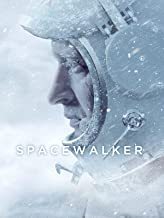
https://www.amazon.de/Science-Fiction-Bücher/s?k=Science+Fiction
--
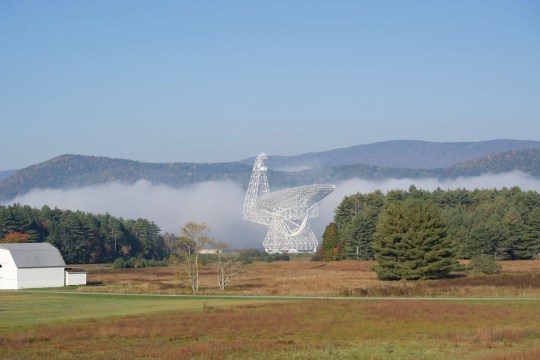
national radio quiet zone
https://science.nrao.edu/facilities/gbt/interference-protection/nrqz

http://www.landesmuseum.at/de/ausstellungen/detail/paul-kranzler-andrew-phelps-es-war-einmal-in-amerika.html

--
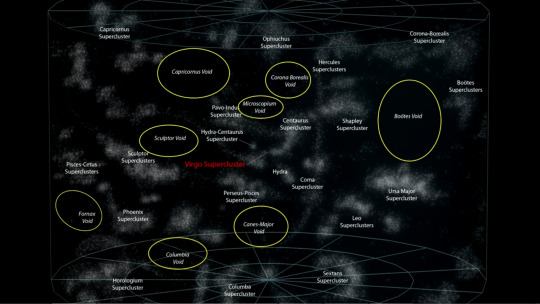
void
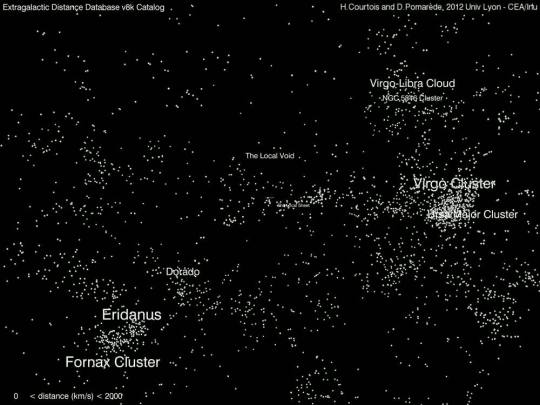
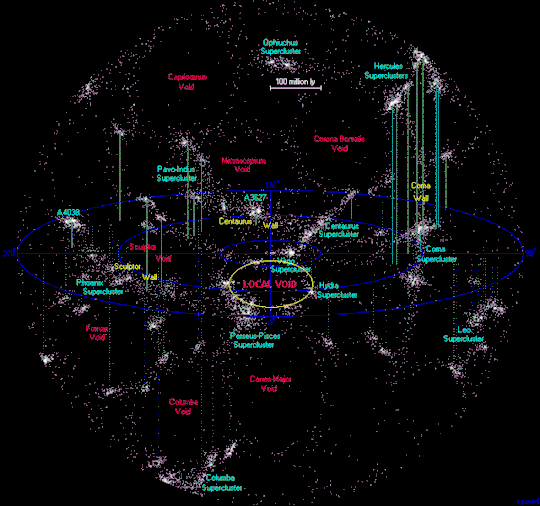
https://en.wikipedia.org/wiki/Local_Void
Cosmicflows-3: Cosmography of the Local Void [] https://arxiv.org/abs/1905.08329
--
https://twitter.com/ESA # https://sci.esa.int/web/juice/home/
1 note
·
View note
Text
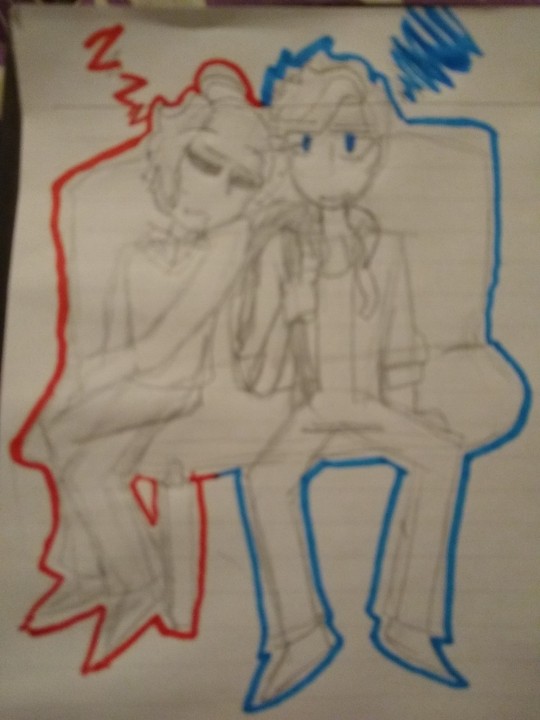
Nothing to see here just a slightly blurry redesign of some totally normal british twins on a train at 3:00 am
#please dont tag as ship#Felix W. Huxley#Ted M. Huxley#train go nyoom#donr worry felix still has his dyed pony tail#sleep train boys#this picture is so blurry cause its on my old phone#I'll retake it later
9 notes
·
View notes
Note
M!A Ted is a Neko for the next 5 threads :3 (I didn't see a rule about how M!As work here so I'm just yeeting it-)
M!A accepted!

“Oh–! I have… cat ears now? Is that a tail–?”
#FGHGFDSFGHFDSFG oh lmao thanks for reminding me i need to add that to my ruleS#anyway uhhhhh maybe i'll have this be for threads and asks bc i probably Shouldn't be accepting more rps at the moment#sdfgdfg so asks count for the 5 thing#kindergarten 2#kindergarten ted#ted huxley#kindergarten game#kindergarten the game#kindergarten teddy#kindergarten theodore#ted kindergarten#theodore huxley#teddy kindergarten#theodore kindergarten#M!A: Neko#|| Unconfident Wealthy Child || IC.#|| Did You Mean To Talk To Felix? || Asks.#|| Good For Nothing Disgrace || Visage.#|| Mediocre Doodles || Art Tag.#Anonymous#🖋️ ––– ・゚★。・:*:・゚☆ 002. My Art.
27 notes
·
View notes
Text
A Brief Guide to Philosophical Classics - James M. Russell
A Brief Guide to Philosophical Classics From Plato to Winnie the Pooh James M. Russell Genre: Philosophy Price: $3.99 Publish Date: March 5, 2015 Publisher: Little, Brown Book Group Seller: Hachette Digital, Inc. Big ideas sometimes come from the strangest places. In this wide ranging introduction, James M Russell takes the fear out of philosophy and selects seventy-six works - from Plato, Descartes and Wittgenstein to Philip K Dick and the Moomins as well as contemporary thinkers such as Peter Singer and John Rawls. Dividing into accessible sections - history, contemplation, happiness, and -isms, Russell gives us the lives as well as the lessons of the great thinkers, including a digest of their key ideas. A perfect antidote to the complex life. The topics and books covered include: Traditional Philosophy: The Republic , Plato; The Confessions , St Augustine; The Leviathan , Thomas Hobbes; On Liberty , John Stuart Mill; Philisophical Investigations , Ludwig Wittgenstein; Critique of Pure Reason , Immanuel Kant. Outsiders: Fear and Trembling , Soren Kierkegaard; Beyond Good and Evil , Frederick Nietzsche; The Outsider , Albert Camus; Doors of Perception , Aldous Huxley. Contemplation as Philosophy: The Prophet , Kahil Gibran; Jonathan Livingston Seagull , Richard Bach; Zen and the Art of Motorcycle Maintenance , Robert Pirsig; The Tao of Pooh , Benjamin Hoff. The Continental Tradition: The Prison Notebooks , Antonio Gramsci; The History of Sexuality , Michel Foucault; Symbolic Exchange and Death , Jean Baudrillard. How to Live Your Life: The Art of War , Sun Tzu; Maxims, La Rouchefoucauld; Memories, Dreams, Reflections , Carl Jung; On Sexuality , Sigmund Freud; On Becoming a Person , Carl Rogers. Political and Personal Issues: Das Kapital , Karl Marx; Being and Nothingness , Jean Paul Sartre; Gaia , James Lovelock. Modern Philosophy: A Theory of Justice , John Rawls; Darwin's Dangerous Idea , Daniel Dennett; After the Terror , Ted Honderich. http://dlvr.it/R6Pc2Z
0 notes
Text
Ted perked you a little. “Mhm!! Felix!! Felix Huxley!” He stated his brothers name proudly, unlike how he stated his own previously.
He paused when he was questioned where Felix was. He looked around a little, then started tearing up. He did his best to answer, anyway. “D- Dunno where he is.. Um,, Felix is better than me..! He’s handsomer ‘nd smarter ‘nd braver..! So he doesn’t get in trouble as much... Everyone loves him..”
He shrugged. “‘m a disappointment.. No good at business.” Oh look, now he’s crying.
Ted just nodded, rubbing his eyes sleepily. “Mhm..” He hummed softly.
He glanced to the yo-yo for a moment, too tired to really acknowledge it though so he just shrugged it off.
43 notes
·
View notes
Text
232 Book Recommendations From Derek Sivers
Mindwise: How We Understand What Others Think, Believe, Feel, and Want by Nicholas Epley
So Good They Can't Ignore You by Cal Newport
The War of Art by Steven Pressfield
Thinking, Fast and Slow by Daniel Kahneman
A Guide to the Good Life: The Ancient Art of Stoic Joy by William Irvine
The Time Paradox by Philip Zimbardo and John Boyd
Stumbling on Happiness by Daniel Gilbert
E-Myth Revisited by Michael Gerber
The Dip by Seth Godin
Happy by Derren Brown
Au Contraire: Figuring Out the French by Gilles Asselin and Ruth Mastron
The Subtle Art of Not Giving a Fuck by Mark Manson
Ego Is the Enemy by Ryan Holiday
Total Recall by Arnold Schwarzenegger
Too Soon Old, Too Late Smart: Thirty True Things You Need to Know Now by Gordon Livingston
Zero to One by Peter Thiel and Blake Masters
Cows, Pigs, Wars, and Witches by Marvin Harris
The Entrepreneur Roller Coaster by Darren Hardy
On Writing Well by William Zinsser
The Wisdom of No Escape by Pema Chödrön
When Things Fall Apart by Pema Chödrön
Fluent Forever by Gabriel Wyner
The Compound Effect by Darren Hardy
When Cultures Collide by Richard D. Lewis
The Antidote: Happiness for People Who Can't Stand Positive Thinking by Oliver Burkeman
Show Your Work by Austin Kleon
Self Reliance by Ralph Waldo Emerson
Antifragile by Nassim Nicholas Taleb
The Willpower Instinct by Kelly McGonigal
Turning Pro by Steven Pressfield
Quiet by Susan Cain
What Technology Wants by Kevin Kelly
Do the Work by Steven Pressfield
What Got You Here Won't Get You There by Marshall Goldsmith
The Personal MBA by Josh Kaufman
Drive by Daniel Pink
Switch by Chip Heath and Dan Heath
The Happiness Hypothesis by Jonathan Haidt
Influence by Robert Cialdini
Personal Development for Smart People by Steve Pavlina
Predictably Irrational by Dan Ariely
The Ultimate Sales Machine by Chet Holmes
The 4-Hour Work Week by Tim Ferriss
The Smartest Investment Book You'll Ever Read by Daniel R. Solin
The Wisdom of Crowds by James Surowiecki
The Paradox of Choice - Why More is Less by Barry Schwartz
Made to Stick by Chip Heath and Dan Heath
The Art of Profitability by Adrian Slywotzky
Guns, Germs, and Steel by Jared Diamond
Steal Like an Artist by Austin Kleon
The Geography of Genius by Eric Weiner
A Mind for Numbers by Barbara Oakley
Smartcuts by Shane Snow
Superhuman by Habit by Tynan
The Obstacle Is the Way by Ryan Holiday
Decisive by Chip and Dan Heath
How to Fail at Almost Everything and Still Win Big by Scott Adams
5 Elements of Effective Thinking by Edward B. Burger and Michael Starbird
The Icarus Deception by Seth Godin
Mastery by Robert Greene
Mastery by George Leonard
The Little Book of Talent by Daniel Coyle
The Developing World by Fredrik Härén
Willpower by Roy Baumeister and John Tierney
Power of Full Engagement by Jim Loehr and Tony Schwartz
Moonwalking with Einstein by Joshua Foer
Practicing Mind by Thomas Sterner
Seeking Wisdom by Peter Bevelin
Mindset by Carol Dweck
Art and Fear by David Bayles and Ted Orland
Start Small, Stay Small by Rob Walling and Mike Taber
On Writing by Stephen King
The Geography of Bliss by Eric Weiner
The Investor's Manifesto by William J. Bernstein
How We Decide by Jonah Lehrer
Sum: Forty Tales from the Afterlives by David Eagleman
The Talent Code by Daniel Coyle
Ignore Everybody by Hugh MacLeod
Tribes by Seth Godin
How to Talk to Anyone by Leil Lowndes
Brain Rules by John Medina
You, Inc - The Art of Selling Yourselfby Harry Beckwith
How to Get Rich by Felix Dennis
The Innovator's Solution by Clayton Christensen
Small is the New Big by Seth Godin
Getting Things Done by David Allen
The 48 Laws of Power by Robert Greene and Joost Elffers
The Road Less Traveled by M. Scott Peck
Grit by Angela Duckworth
How to Talk So Kids Will Listen & Listen So Kids Will Talk by Adele Fabe and Elaine Mazlish
The Gardener and the Carpenter by Alison Gopnik
The Inevitable by Kevin Kelly
Peak: Secrets from the New Science of Expertise by Anders Ericsson
Deep Work by Cal Newport
Geography of Time by Robert Levine
How to Learn a Foreign Language by Paul Pimsleur
Man's Search for Meaning by Viktor Frankl
Choose Yourself! by James Altucher
No B.S. Time Management for Entrepreneurs by Dan S. Kennedy
The Power of Habit by Charles Duhigg
The Passionate Programmer by Chad Fowler
Fail-Safe Investingby Harry Browne
Poke the Box by Seth Godin
The 4-Hour Body by Tim Ferriss
Cognitive Surplus by Clay Shirky
Hackers & Painters by Paul Graham
Confessions of a Public Speaker by Scott Berkun
I Will Teach You To Be Rich by Ramit Sethi
Why Smart People Make Big Money Mistakes by Gilovich and Belsky
What Would Google Do? by Jeff Jarvis
CrowdSourcing by Jeff Howe
The Magic of Thinking Big by David Schwartz
The Art of Learning by Josh Waitzkin
Wikinomics by Don Tapscott and Anthony Williams
Meatball Sundae by Seth Godin
Don't Make Me Think by Steve Krug
Nobody Wants to Read Your Sh*t by Steven Pressfield
The Only Investment Guide You'll Ever Need by Andrew Tobias
Living Beautifully with Uncertainty and Change by Pema Chödrön
Germany: Unraveling an Enigma by Greg Nees
Give and Take by Adam M. Grant
The Bed of Procrustes by Nassim Nicholas Taleb
Making Ideas Happen by Scott Belsky
A Short History of Nearly Everything by Bill Bryson
Ikigai by Sebastian Marshall
Wired for Story by Lisa Cron
Pragmatic Programmer by Andy Hunt and David Thomas
Meditations by Marcus Aurelius
You Are Not So Smart by David McRaney
The Lean Startup by Eric Ries
Making a Good Brain Great by Daniel G. Amen
Business Stripped Bare by Richard Branson
Talent Is Overrated by Geoff Colvin
Never Eat Alone by Keith Ferrazzi and Tahl Raz
Overachievement by John Eliot
The How of Happiness by Sonja Lyubomirsky
The Culture Code by Clotaire Rapaille
The Four Pillars of Investing by William Bernstein
Here Comes Everybody by Clay Shirky
The Culting of Brands by Douglas Atkin
Execution by Larry Bossidy and Ram Charan
Maximum Achievement by Brian Tracy
The Daily Stoic by Ryan Holiday
How I Found Freedom in an Unfree World by Harry Browne
The Sense of Style by Steven Pinker
How Adam Smith Can Change Your Life by Russ Roberts
Daily Rituals: How Artists Work by Mason Currey
The Story of French by Jean-Benoit Nadeau and Julie Barlow
Island by Aldous Huxley
Ready for Anything by David Allen
Starting Strength by Mark Rippetoe
The Now Habit by Neil Fiore
Meditation for Beginners by Jack Kornfield
A Gift to My Children by Jim Rogers
Linchpin by Seth Godin
The Selfish Gene by Richard Dawkins
Nudge by Richard Thaler and Cass Sunstein
Being Logical: A Guide to Good Thinking by D.Q. McInerny
Pomodoro Technique Illustrated by Staffan Nöteberg
Pragmatic Thinking and Learning by Andy Hunt
The Great Formula by Mark Joyner
Outliers: The Story of Success by Malcolm Gladwell
Lucky Or Smart? by Bo Peabody
The China Study by Campbell and Campbell
The Power of Less by Leo Babuta
Cut to the Chase by Stuart Levine
Know-How by Ram Charan with Geri Willigan
The Art of Project Management by Scott Berkun
Mindware: Tools for Smart Thinking by Richard Nisbett
Never Let Go by Dan John
In Pursuit of Silence by George Prochnik
The Laws of Subtraction by Matthew May
Drop Dead Healthy by A. J. Jacobs
Little Bets by Peter Sims
One Simple Idea by Stephen Key
Focus by Leo Babauta
The Upside of Irrationality by Dan Ariely
The Profit Zone by Adrian Slywotzky
Speaking of India by Craig Sorti
Losing My Virginity : How I've Survived, Had Fun, and Made a Fortune Doing Business My Way by Richard Branson
Leading an Inspired Life by Jim Rohn
And Never Stop Dancing by Gordon Livingston
The Drunkard's Walk: How Randomness Rules Our Lives by Leonard Mlodinow
Simple Rules: How to Thrive in a Complex World by Donald Sull
Quirkology by Richard Wiseman
Writing Tools by Roy Peter Clark
A More Beautiful Question by Warren Berger
Make It Stick by Peter Brown
The Power of No by James and Claudia Altucher
How to Learn and Memorize French Vocabulary by Anthony Metivier
The Checklist Manifesto by Atul Gawande
Hiring Smart by Pierre Mornell
Discover Your Inner Economist by Tyler Cowen
Causing a Scene by Charlie Todd
Born to Run by Christopher McDougall
How to be a Billionaire by Martin Fridson
Enough by John Bogle
Management of the Absurd by Richard Farson
Reality Check by Guy Kawasaki
Fooled by Randomness by Nassim Nicholas Taleb
The Obsolete Employee by Michael Russer
Secrets of the Millionaire Mind by T. Harv Ecker
The Future of Almost Everything by Patrick Dixon
Wilde in America by David M. Friedman
Complexity: A Guided Tour by Melanie Mitchell
Your Memory by Kenneth L. Higbee
The Philosophical Baby by Alison Gopnik
Hire With Your Head by Lou Adler
The Pleasures and Sorrows of Work by Alain De Botton
Born Standing Up by Steve Martin
Committed by Elizabeth Gilbert
What the Dog Saw by Malcolm Gladwell
China Road by Rob Gifford
Hot Commodities by Jim Rogers
Me, Inc. by Gene Simmons
Bird by Bird by Anne Lamott
Program or Be Programmed by Douglas Rushkoff and Leland Purvis
The Four Filters Invention of Warren Buffett and Charlie Munger by Bud Labitan
What I Talk About When I Talk About Running by Haruki Murakami
Confessions of a Serial Entrepreneur by Stuart Skorman
Life Without Lawyers by Philip K. Howard
The Productive Programmer by Neal Ford
Crash Proof 2.0 by Peter Schiff
Rapt by Winifred Gallagher
Radical Honesty by Brad Blanton
A Bull in China by Jim Rogers
Founders at Work by Jessica Livingston
Seeing What Others Don't by Gary Klein
Flex: Do Something Different by Ben Fletcher and Karen Pine
Cambodia's Curse by Joel Brinkley
Conspiracy of the Rich by Robert Kiyosaki
The Think Big Manifesto by Michael Port and Mina Samuels
6 notes
·
View notes